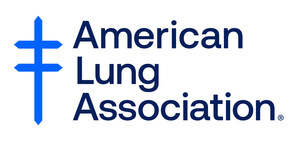
Comprehensive Insurance Coverage Needed to Help Pennsylvanians Quit Smoking
PHILADELPHIA, Feb. 15 /PRNewswire/ -- As a new year and decade begin, many Pennsylvanians have made an important resolution to quit smoking. Wanting to quit is a good first step, but it's not nearly enough. Smoking, we now know, is not just a "habit"; it's a true physical addiction, and, on average, most smokers try at least five times to quit.
(Photo: http://www.newscom.com/cgi-bin/prnh/20100215/PH54730 )
People who want to quit smoking need all the support they can get – from family members, coworkers, healthcare providers, public policymakers, and society. And so it's unfortunate that for the more than 2.2 million people in Pennsylvania who smoke, there are still significant barriers in place that will make it difficult, if not impossible, for them to quit. Of these barriers, one of the most significant is the lack of comprehensive insurance coverage for smoking cessation.
The American Lung Association just released its State of Tobacco Control 2009 report, which grades the strength of federal and state laws to protect citizens from tobacco-caused illnesses. To arrive at the grades published in the State of Tobacco Control 2009, the ALA compared policies against targets based on the most current, recognized scientific criteria for effective tobacco control, or policies considered the best in the nation. Pennsylvania earned a "C" for its "comprehensive coverage" of smoking cessation, and an "F" for its efforts to fund and support tobacco control programs. The Commonwealth's rating in this report is a clear indication that Pennsylvania's commitment to smoking cessation is not strong enough. We can and must do better.
The CDC recommends comprehensive cessation benefits that include access to a combination of counseling and all FDA-approved prescription and over-the-counter treatments. Without access to this type of comprehensive benefit, we know that only five percent of smokers will succeed at overcoming their nicotine addiction. Yet, despite this knowledge, many insurance plans in Pennsylvania -- both public and private -- still do not include this kind of comprehensive smoking cessation coverage as a standard offering of health plans. This means thousands of Pennsylvanians, including state employees and many people covered by Medicaid Managed Care plans, do not have access to comprehensive benefits.
In Pennsylvania, most commercial insurance plans fall short on meeting the CDC's gold standard for smoking cessation. Many offer just enough to technically say they have a benefit – perhaps limiting access only to a few counseling sessions or to one type of smoking cessation treatment – but not enough to REALLY help people to quit. Even Pennsylvania's largest employer, state government, with more than 80,000 employees, denies access to comprehensive smoking cessation coverage through the Pennsylvania Employees Benefit Trust Fund. The plan offers a small benefit, but again fails to come close to the CDC's Gold Standard. With the public smoking ban and cigarette taxes in place, the lack of cessation coverage for state employees sends a contradictory message on the Commonwealth's commitment to a healthier, truly smoke-free Pennsylvania.
A recent study out of Massachusetts proves the overwhelming and immediate value of providing comprehensive smoking cessation coverage. When the Massachusetts Medicaid program put a comprehensive smoking cessation benefit in place, smoking rates among the poor plummeted 26 percent in the first two years of the ongoing state program. These striking results show the immediate reduction of smoking prevalence when barriers to access are reduced or eliminated, and a parallel reduction in immediate (one-year) health care costs in asthma, heart attacks, and birth complications.
In addition to proving highly effective in helping smokers kick the habit, another recent study shows that there are also significant economic benefits to smoking cessation. A recent economic study conducted by researchers at the Pennsylvania state University College of Medicine found that smoking costs the Pennsylvania economy more than $16 billion per year – the equivalent to $23.77 per each $4.72 pack of cigarettes sold.
Interestingly enough, recent surveys show that more than 75 percent of Pennsylvanians have said it is time for health insurance companies to make CDC-level smoking cessation coverage part of standard health insurance benefit packages. It's clear from the Massachusetts study that literally thousands of lives could be saves by doing so in the short-term and countless more over the coming years and decades. I encourage our policymakers, Governor, and private insurers to work together to continue the great stride the Commonwealth made with the Clean Indoor Air Act. Let's continue on the right path by settling for nothing less than the Gold Standard of coverage for our Commonwealth employees, our Medicaid recipients and all of our residents.
SOURCE American Lung Association






Share this article